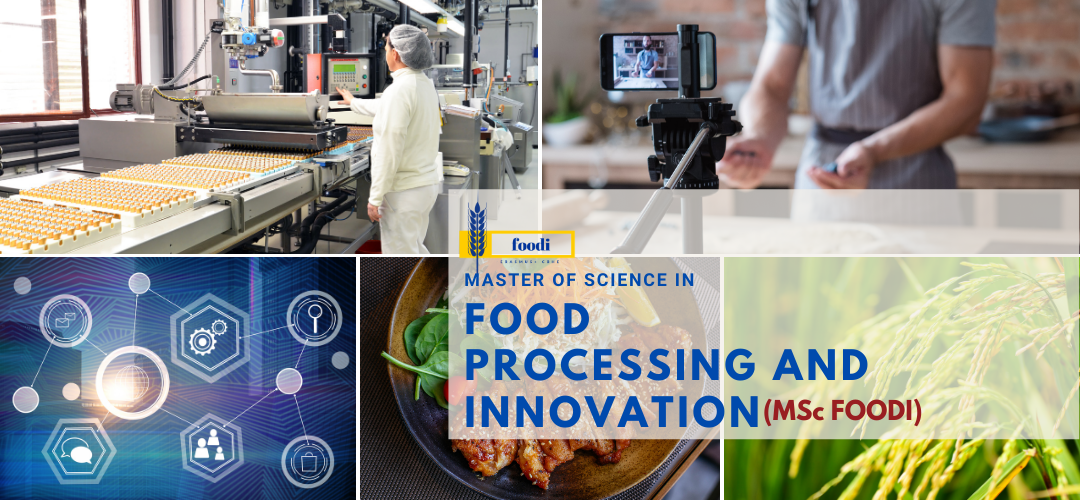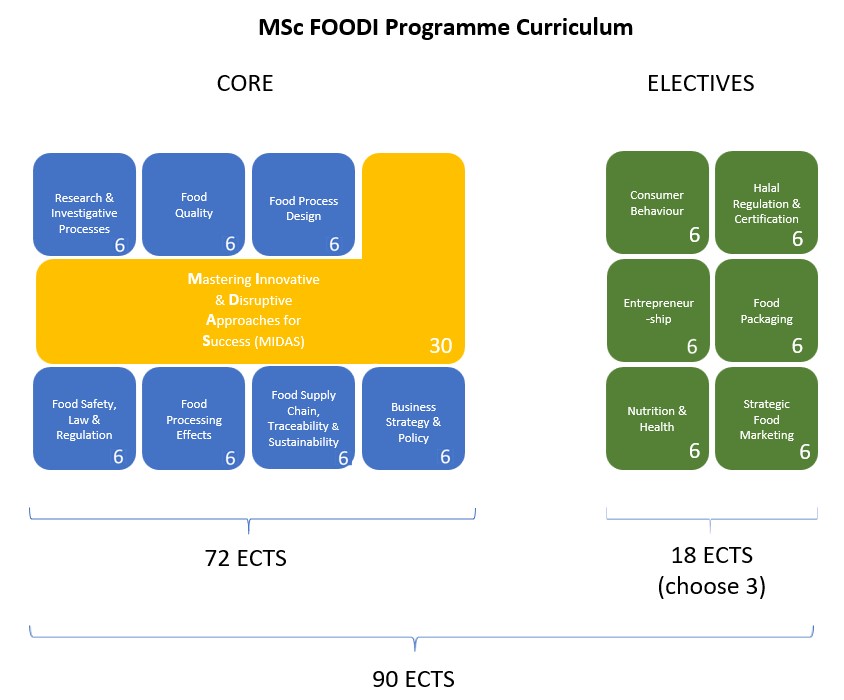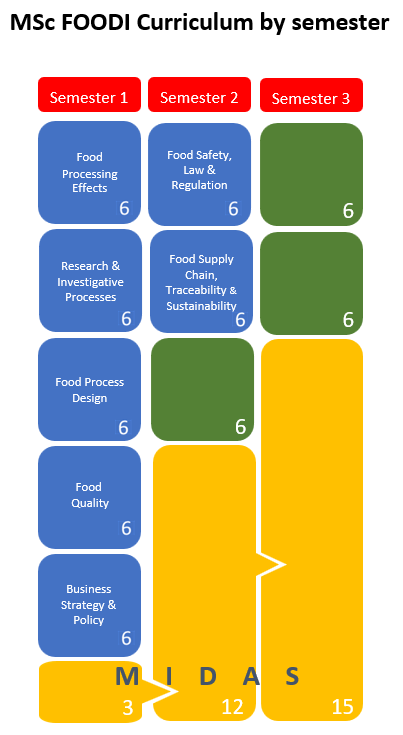MSc Food Processing & Innovation
The FOODI MSc Programme contains 90 credits, delivered over three semesters, with 72 core and 18 elective credits. The programme includes both technical (engineering, science, nutrition, health) and business (entrepreneurial/intrapreneurial, innovation, business strategy) aspects. The core of the programme is the MIDAS course with an allocation of 30 credits. MIDAS is an acronym for ‘Mastering Innovative and Disruptive Approaches for Success’ which aims to foster creative confidence as well as an innovative and entrepreneurial mindset in the students and includes an industry linked Action Research Project culminating in a presentation of the projects at a FOODI Conference with the host industries. Flexibility is afforded in a choice of three elective courses, each carrying the standard 6 credits. The pedagogical approach will be rooted in active learning and encapsulates a challenging, innovative and creative environment.


